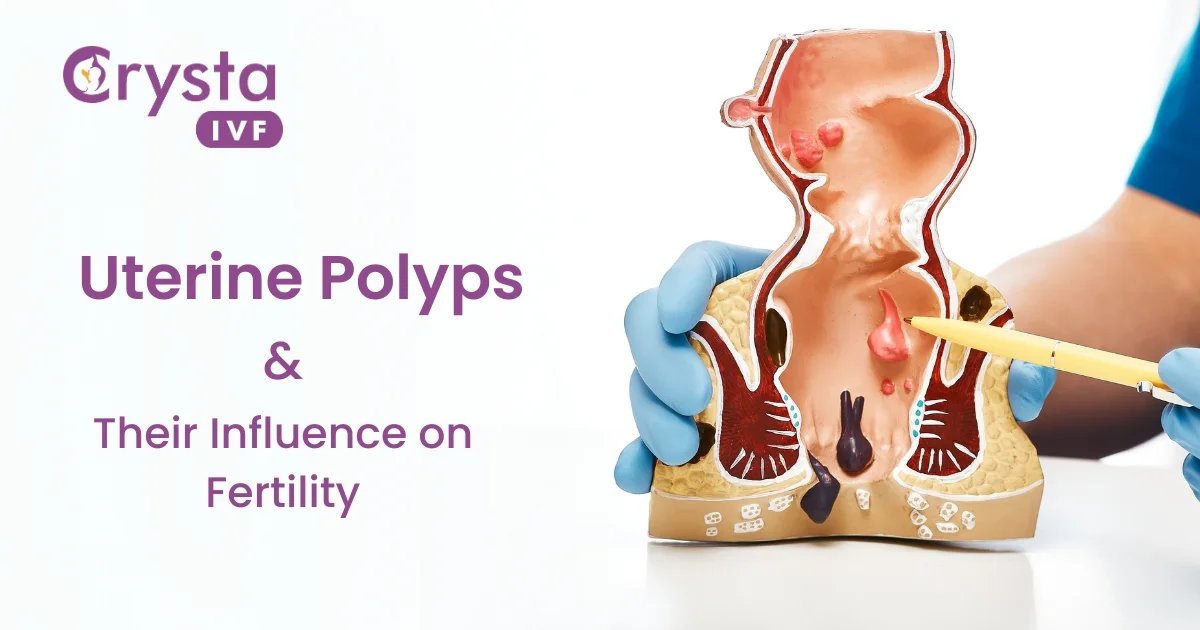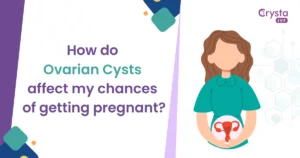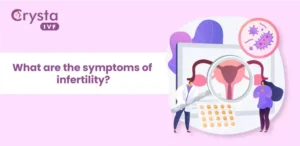
Medically Reviewed By
Dr. Nidhi Sehrawet

Uterine polyps, also known as endometrial polyps, are abnormal growths that develop within the lining of the uterus. While they are generally non-cancerous, these small tissue outgrowths can cause a variety of symptoms and complications for women of reproductive age. So, let’s explore what causes uterine polyps, and the symptoms of uterine polyps,, as well as their potential impact on fertility, along with the treatment. Whether you’re experiencing its symptoms or simply seeking to expand your knowledge, this blog will cover everything you need to know about uterine polyps.
What are Uterine Polyps?
Uterine polyps are growths that develop in the inner lining of the uterus, known as the endometrium. These polyps are usually non-cancerous and are made up of overgrown cells. They can vary in size, ranging from a few millimeters to several centimeters.
Although they are generally harmless, they can cause various symptoms and may need to be removed if they interfere with fertility or cause discomfort.
Common locations of uterine polyps within the uterus:
Uterine polyps can occur in different areas of the uterus. The most common location is the endometrium, the inner lining of the uterus.
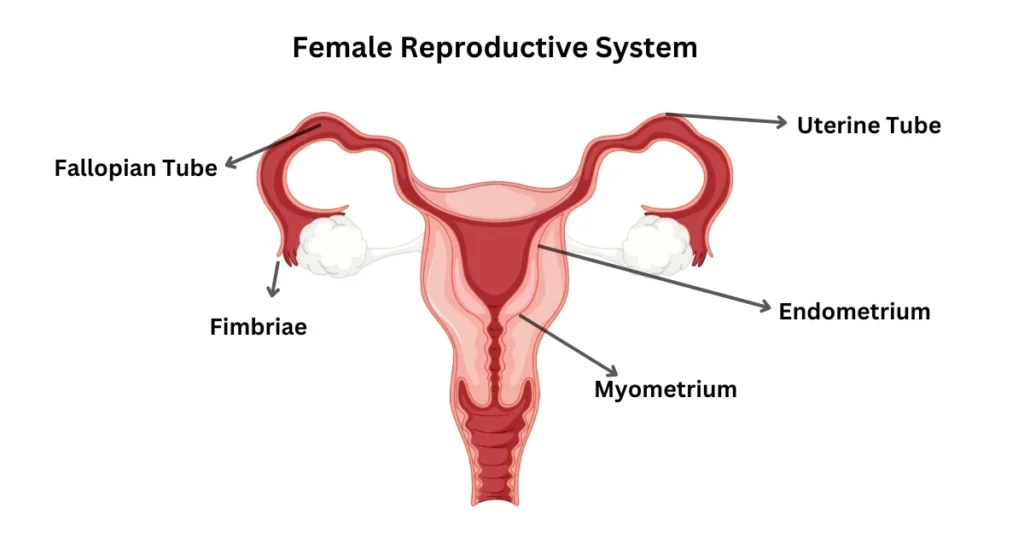
However, they can also develop in other regions, such as the cervix, which is the lower, narrow part of the uterus that connects to the vagina.
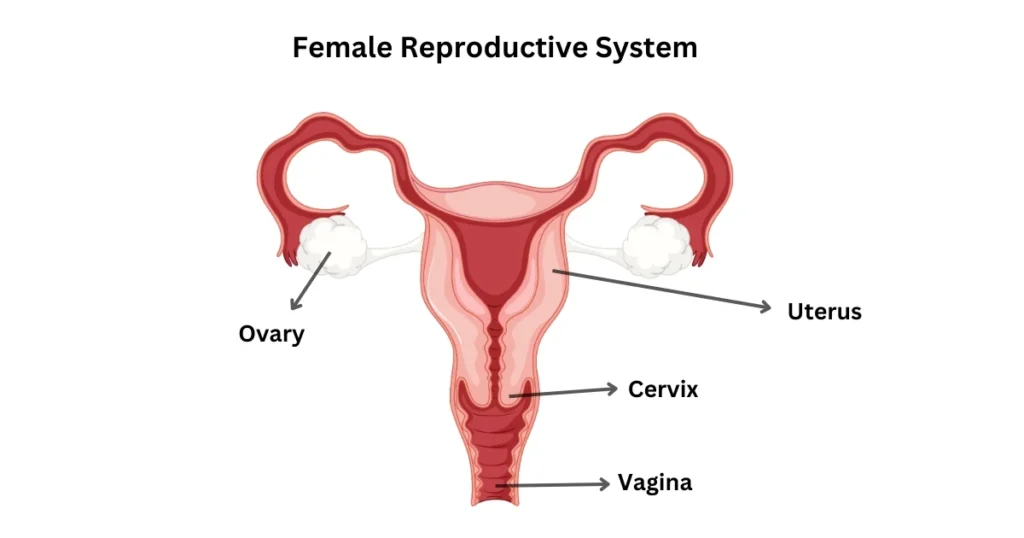
Polyps in the cervix are known as cervical polyps and are less common compared to endometrial polyps. Regardless of their location, both types of polyps can lead to similar symptoms and may require evaluation and Endometrial polyp treatment.
Causes of Endometrial polyps
Fluctuations in hormone levels, particularly estrogen
- Chronic inflammation in the uterus can lead to the formation of polyps
- Polycystic ovary syndrome (PCOS) can result in elevated estrogen levels, increasing the risk of endometrial polyps
- Being overweight or obese
- Women who are in their 40s and 50s have a higher risk
- Genetic conditions (such as Cowden syndrome)
- Excessive estrogen production
- Endometrial hyperplasia (Abnormal thickening of the uterine lining)
Symptoms of Uterine Polyps
Here are some common uterine polyps symptoms, you may experience:
- Irregular menstrual bleeding
- Prolonged or heavy menstrual bleeding
- Frequent urination
- Infertility or difficulty conceiving
- Pelvic pain or discomfort
- Passage of tissue or blood clots
- Anemia
- Vaginal bleeding after menopause
Impact of Uterine Polyps on Fertility
When it comes to fertility, uterine polyps or polypoid endometrium can have a significant impact on a woman’s reproductive journey. These small growths in the lining of the uterus can affect various aspects of fertility, from implantation to successful conception.
1. Effect of polyps on implantation
One of the primary effects of endometrial polyps on fertility is their interference with the implantation process. Normally, a fertilized egg needs a healthy uterine lining for successful attachment and implantation.
However, the presence of polyps can create an unfavorable environment, making it difficult for the embryo to implant properly.
2. Increased risk of miscarriage
Women with uterine polyps also face an increased risk of miscarriage. The presence of polyps can disrupt the development of the placenta and affect the blood supply to the embryo.
This can lead to complications and increase the likelihood of miscarriage during the early stages of pregnancy.
3. Challenges in conception and achieving pregnancy
Additionally, uterine polyps can pose challenges in conception and achieving pregnancy. The physical presence of polyps can obstruct the fallopian tubes or disrupt the movement of sperm, hindering fertilization.
In vitro fertilization (IVF) and Uterine Polyps
In vitro fertilization (IVF) is a commonly used assisted reproductive technique that can help individuals and couples overcome fertility challenges.
However, the presence of uterine polyps can impact the success rates of IVF. The irregular surface of polyps can interfere with embryo implantation, reducing the chances of a successful pregnancy.
Pre-IVF polyp removal and its benefits
For individuals planning to undergo IVF, pre-IVF polyp removal may be recommended. Removing endometrial polyps before starting IVF can help create a favorable environment for embryo implantation.
Surgical procedures like hysteroscopy involve the removal of polyps using a thin, lighted instrument inserted through the vagina and cervix.
By addressing the polyps before IVF, individuals can potentially increase their chances of successful implantation and pregnancy.
Here’s A Comprehensive Guide to Hysteroscopy and Its Role in IVF
Considerations for fertility preservation
Fertility preservation is another important consideration for individuals with uterine polyps. If the presence of polyps is identified, but fertility is not an immediate concern, it may still be beneficial to address them before attempting to conceive.
This proactive approach can help preserve fertility by ensuring optimal conditions for future pregnancy attempts.
Want to learn more about Fertility preservation & its role in infertility treatment?
Check out this article – Cryopreservation Process & Its Use For Infertility Treatment
Prevention and Lifestyle Factors
- Adopting a healthy lifestyle, including regular exercise and a balanced diet to help manage weight and reduce the risk of developing polyps.
- Manage hormonal health through regular exercise and stress reduction.
- Routine screenings, such as pelvic exams and ultrasounds, can help identify uterine polyps at an early stage.
- Consuming a nutrient-rich diet that includes fruits, vegetables, whole grains, lean proteins, and healthy fats can contribute to overall reproductive health.
- Quitting smoking and limiting alcohol intake can contribute to overall health and reduce the risk of developing polyps.
- Limiting exposure to environmental toxins and endocrine-disrupting chemicals, such as certain pesticides and plastics, may help prevent hormonal imbalances.
Takeaway
Seeking medical attention for uterine polyps is of utmost importance for both overall health and fertility. Whether you are experiencing symptoms, planning to conceive, or facing fertility challenges, consulting with healthcare professionals is crucial.
At Crysta IVF, best fertility clinic in Kolkata, we provide specialized care and support for individuals facing fertility challenges. With a team of experienced fertility specialists, we can offer guidance, personalized treatment plans, and the latest advancements in reproductive medicine.
If you’re concerned about the impact of uterine polyps on your fertility or worried about the success of IVF, don’t hesitate to reach out to medical experts at Crysta IVF who can help guide you on the right path to improve outcomes and fulfill your dream of starting or expanding your family.

